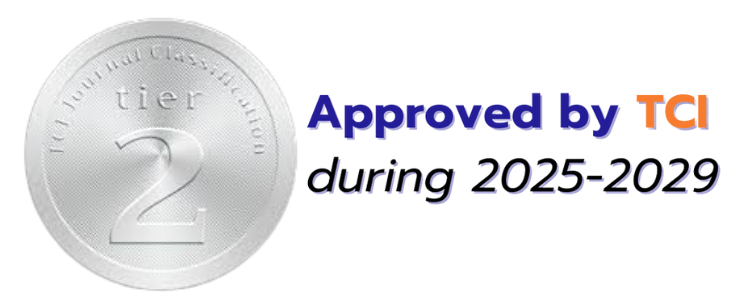ผลการใช้รูปแบบการบริหารจัดการชั้นเรียน RCA ในรายวิชาวิชาชีพครูปฐมวัย
The Results of RCA ClassroomManagement Model in Early ChildhoodTeacher Professional Subjects
Keywords:
แบบการเรียน, รูปแบบการบริหารจัดการชั้นเรียน RCA, นักศึกษาสาขาวิชาการศึกษาปฐมวัย, พฤติกรรมการเรียน, Learning style, RCA classroom management model, early childhood education students, Learning behaviorsAbstract
การวิจัยครั้งนี้มีวัตถุประสงค์คือ1)เพื่อวิเคราะห์แบบการเรียนของนักศึกษา 2) เพื่อศึกษาผลการพัฒนาพฤติกรรมการเรียนรายวิชาวิขาชีพครูปฐมวัย โดยใช้รูปแบบการบริหารจัดการชั้นเรียน RCA 3) เพื่อเปรียบเทียบระหว่างพฤติกรรมการเรียนกับแบบการเรียนหลังการทดลองใช้รูปแบบบริหารจัดการชั้นเรียน RCA 4) เพื่อศึกษาความพึงพอใจของนักศึกษาในการใช้รูปแบบการบริหารจัดการชั้นเรียน RCA กลุ่มตัวอย่างที่ใช้ศึกษา คือ นักศึกษาสาขาวิชาการศึกษาปฐมวัยชั้นปีที่ 3 มหาวิทยาลัยสวนดุสิต วิทยาเขตสุพรรณบุรี ในภาคเรียนที่ 2 ปีการศึกษา 2559 จำนวน 50 คนที่มีแบบการเรียนแตกต่างกัน 6 แบบ คือ แบบอิสระ แบบหลีกเลี่ยง แบบร่วมมือ แบบพึ่งพา แบบแข่งขัน และแบบมีส่วนร่วม เก็บรวบรวมข้อมูลด้วยแบบสำรวจแบบการเรียนและแบบสังเกตพฤติกรรมการเรียน 3 ด้าน ได้แก่ ความมีวินัย การใฝ่รู้ และการยอมรับฟังความคิดเห็นของผู้อื่น ใช้สถิติพื้นฐานในการวิเคราะห์ข้อมูล เปรียบเทียบค่าเฉลี่ยพฤติกรรมการเรียนตามแบบการเรียนของผู้เรียนโดยใช้ ANCOVA ผลการศึกษาพบว่านักศึกษามีแบบการเรียนแบบมีส่วนร่วมสูงสุด และมีแบบการเรียนแบบหลีกเลี่ยงน้อยที่สุด หลังการทดลองใช้รูปแบบการบริหารจัดการชั้นเรียน RCA พฤติกรรมการเรียนของนักศึกษาในภาพรวมอยู่ในระดับดี ผู้เรียนที่มีแบบการเรียนแบบแข่งขัน มีค่าคะแนนเฉลี่ยพฤติกรรมการเรียนสูงสุด และนักศึกษาที่มีแบบการเรียนต่างกันมีพฤติกรรมการเรียนไม่แตกต่างกัน และนักศึกษามีระดับความพึงพอใจในการการบริหารจัดการชั้นเรียนรูปแบบนี้ในระดับมาก ทั้งด้านกระบวนการจัดการเรียนรู้และด้านผลที่ผู้เรียนได้รับ
The purpose of this research were: 1) to analyze students' learning styles, 2) to study the effect of the development of students’ learning behavior in early childhood teacher professional subjects after using the RCA classroom management model, 3) to compare between learning behavior and learning style after experimental the RCA classroom management model, and 4) to study students' satisfaction in using the RCA classroom management model. The sample consisted of 3rd year early childhood education students, Suan Dusit University Suphanburi Campus of 50 people with six different learning styles in the second semester of the academic year 2016.Six styles of learning included those of were independent, dependent, avoidance, collaboration, competitive and participant style. The instrument used for data collection was self-report questionnaire and observation study three aspects of behaviors concentrating on disciplines, curiosity and acceptance. Basic statistics were using and compare the average behaviors of learners learning style using ANCOVA. The results were as follows:Participant learning style took the lead followed by collaboration.Behavior of students in the class as a whole at a good level. Competitive learning style took the lead of the average learning behaviors of students score.There was no significant interaction between learning style and learning behaviors of students.After using the classroom management model, most of students were very satisfied with the learning process and the outcome.







